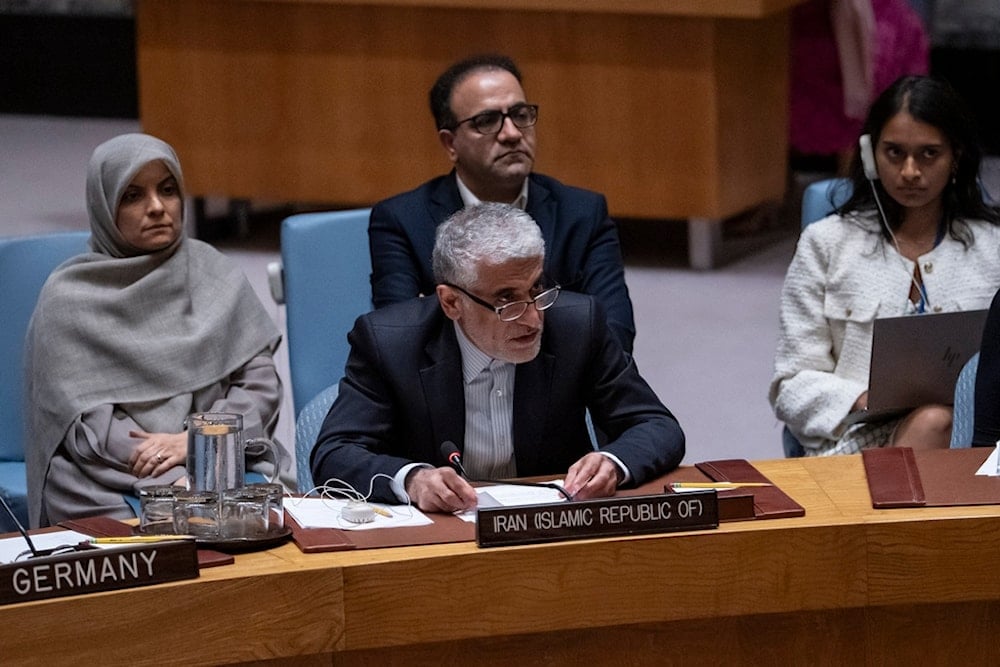South Korea drafts UN resolution to end Iran sanctions
Tehran warns Europe against abusing the snapback clause, as Russia and China push diplomacy and South Korea advances a new resolution at the UN.
-

Iran's Ambassador and Permanent Representative to the United Nations, Amir Saeid Iravani speaks during a Security Council meeting at the United Nations Headquarters, Tuesday, June 24, 2025. (AP)
South Korea finalized a draft resolution on Monday for the UN Security Council that would permanently lift sanctions on Iran. On August 28, Britain, France, and Germany initiated a 30-day procedure to reimpose UN sanctions, alleging, without evidence, that Tehran had failed to comply with the 2015 nuclear deal aimed at preventing the country from developing nuclear weapons.
Under this snapback mechanism, the Security Council must vote by late September on a resolution to permanently lift sanctions on Iran. Approval requires at least nine votes in favor and no vetoes from the United States, Russia, China, Britain, or France.
If no member proposes a resolution within 10 days of triggering the snapback, the council president, in South Korea’s case, would be responsible for introducing it. By finalizing the text on Monday, South Korea can now submit it for a vote at any point before the 30-day deadline, although adoption appears unlikely.
European efforts to delay sanctions
Britain, France, and Germany are pressuring Iran with three conditions in exchange for a temporary delay in reimposing UN sanctions.
The move is seen as another attempt by European powers to buy time and maintain leverage, while Russia has consistently argued that Iran’s nuclear program remains peaceful and that Western pressure only undermines prospects for a fair, long-term solution.
Any extension would still require a Security Council resolution, where Moscow has emphasized the need for balanced negotiations rather than coercion.
Russia, China’s proposal
Separately, Russia and China, Iran’s strategic allies, finalized a draft resolution late last month that would extend the 2015 deal by six months and call for all parties to resume negotiations immediately. However, they have not yet requested a vote.
If Russia and China submit their resolution before Germany, France, and Britain reach an agreement with Iran on a delay, the resolution could face a veto from France, Britain, or the US.
Addressing reporters at his regular press conference on Monday, Iranian Foreign Ministry spokesperson Esmaeil Baghaei said, “We see it a duty to take advantage of every opportunity to advance the country’s interests, express our demands, and warn about the consequences of the three European countries’ misuse of the Snapback Mechanism to reinstate the terminated UN Security Council resolutions.”
He also expressed hope that European powers would reconsider their approach, urging them to properly understand the consequences of a confrontational stance.
Read more: Europe has no right to invoke snapback mechanism under JCPOA: Azizi

 3 Min Read
3 Min Read










